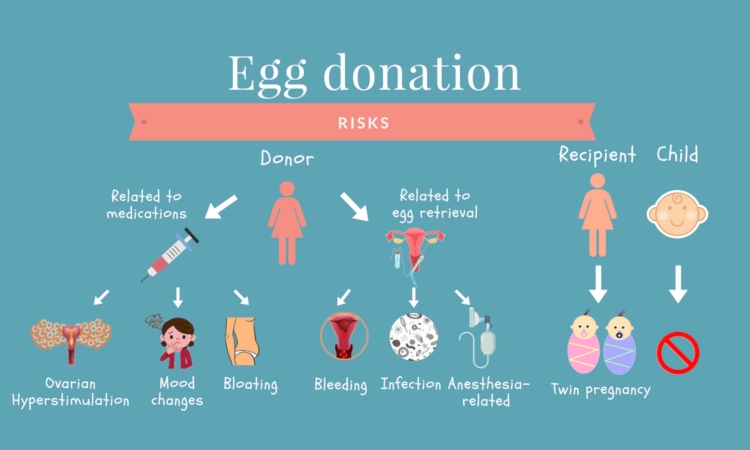The reason for that is always different: some of the intended parents have reproductive pathologies, some women entered their menopause too early. Egg donation is also a solution for same-sex couples or single parents who want to create a family.
The process includes interviews, screenings, medication cycle and egg retrieval.
Discover more about egg donation programs on the “Parens Fertility” website: https://parensfertility.com/egg-donation-programs/.
Which requirements must the donor meet?
Every country has their own requirements for donors. Good health, a functional reproductive system and the absence of bad habits are the most obvious ones. Reproductive health centres and agencies must provide donors-to-be with a medical examination as well as other kinds of screening.
The main requirements for donors are:
- age from 18 to 30 — starting age depends on the country;
- own healthy child;
- absence of the hereditary diseases and genetical aberrations in the family;
- absence of bad habits like smoking, alcohol or drug use;
- stable menstrual cycle with regular periods.
Only the healthiest candidates who meet every requirement are eligible to become donors. This is another reason why some screening procedures have to be conducted.
What screening procedures are being conducted?
During the first appointment at the reproductive agency, only a urine test is performed. This serves as both a drug test and an AMH hormone level test.
After that, there will be a few appointments dedicated purely to physical examinations, psychological evaluation and some laboratory tests. The latter include blood tests for TORCH infections, STDs, level of hormones produced by ovaries, and blood type. Another blood test that is required — karyotyping. This genetic screening allows seeing any hereditary diseases or genetic anomalies, which is extra important when it comes to reproductive health.
After that phase, a donor signs a legal agreement, where she consents that after the egg retrieval she has no legal right for her donated eggs.
The timeline of the egg donation procedures
Egg donation takes a lot of time and commitment. After signing all the documents, you’ll have a schedule for every phase before egg retrieval. While the screening process can take up to ten weeks, after being chosen by intended parents, things go rather intensive.
First of all, the donor has to take some contraceptive medication after her period while waiting for the medication cycle. This usually lasts for two or three weeks that end with the final appointment before the stimulation of ovaries starts.
The medication cycle lasts for approximately 10 days of injections the donor performs herself. Every day she has to monitor the state of her ovaries in the clinic, and after the last injection, she receives HCG shot to trigger ovulation.
36 hours after that, an egg retrieval procedure begins. The doctor uses ultrasound visualization to guide a small needle towards the ovaries. Fertile eggs are retrieved through that needle.
The whole manipulation takes around half an hour but requires some rest afterwards. Overall, the donation cycle takes a bit more than a month, including 10 days of daily appointments.
Every woman who wants to become a donor should keep in mind that egg donation is a process that takes a lot of time and commitment. Though all the time and effort is fairly compensated by fertility agency, donors must understand the responsibility they take.
The best way to learn more about egg donation programs is to visit the “Parens Fertility” agency. Find all the information you need at their website, pay a visit to Lviv, 36 Shchyretska st., or simply call +38 067 510 82 35 for the Ukrainian office or +4 812 333 74 77 for Polish one.

